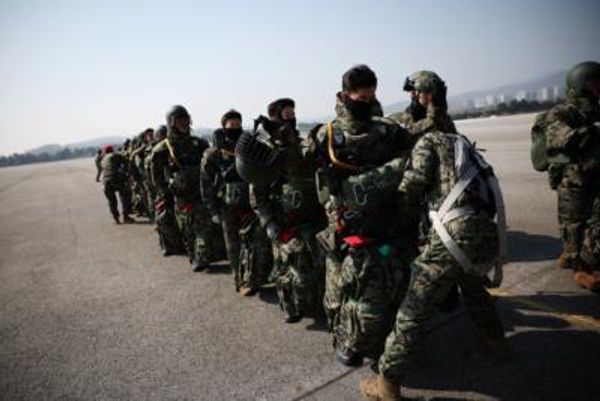ST. LOUIS — A Missouri appellate court Friday denied St. Louis Circuit Attorney Kimberly M. Gardner's appeal of her and her office's disqualification from the gun case against Mark McCloskey, who with his wife pointed firearms at protesters outside their Central West End home in June.
The decision, for now, upholds Judge Thom Clark's order in December dismissing Gardner and her office from the case and means the circuit attorney's office would have to appeal to the Missouri Supreme Court in an effort to reverse the ruling.
It's not clear if Gardner will bring the matter to that court.
McCloskey, 64, and Patricia McCloskey, 61, pleaded not guilty in October to charges of unlawful use of a weapon and evidence tampering related to the confrontation with protesters outside their home on Portland Place, a private and gated street. The protesters were walking past en route to a demonstration blocks away outside the home of Mayor Lyda Krewson. The McCloskeys said they felt threatened by the group as it walked by.
The McCloskeys sought to disqualify Gardner from handling the case, alleging she exploited it for political gain. The judge who disqualified Gardner agreed, saying campaign fundraising emails mentioning the investigation of the McCloskeys raised an appearance that she "initiated a criminal prosecution for political purposes."
Gardner's office then appealed the ruling, arguing Clark exceeded his authority because Gardner has "no personal interest, actual or perceived" in prosecuting Mark McCloskey.
Last week Circuit Judge Michael Stelzer, who is presiding over Patricia McCloskey's case, adopted Clark's disqualification order in her case. Meanwhile, the task of appointing a special prosecutor in the case now rests with Circuit Judge Steven Ohmer, who was awaiting the appeals court ruling before assigning someone.
Gardner's lawyers have said she has the right to defend against attacks from Republican political foes from Missouri and elsewhere. The campaign emails, her lawyers have said, contained only generic references to the McCloskeys without mentioning them by name, made no promises to prosecute them in exchange for votes and amounted to constitutionally protected "campaign speech."







